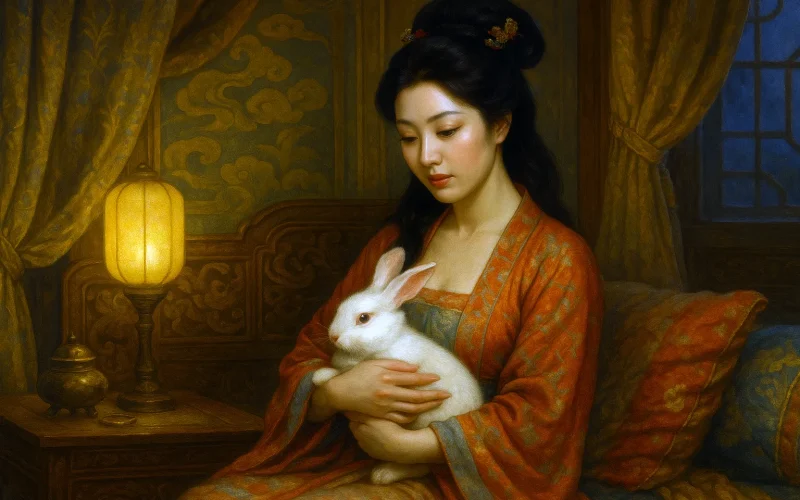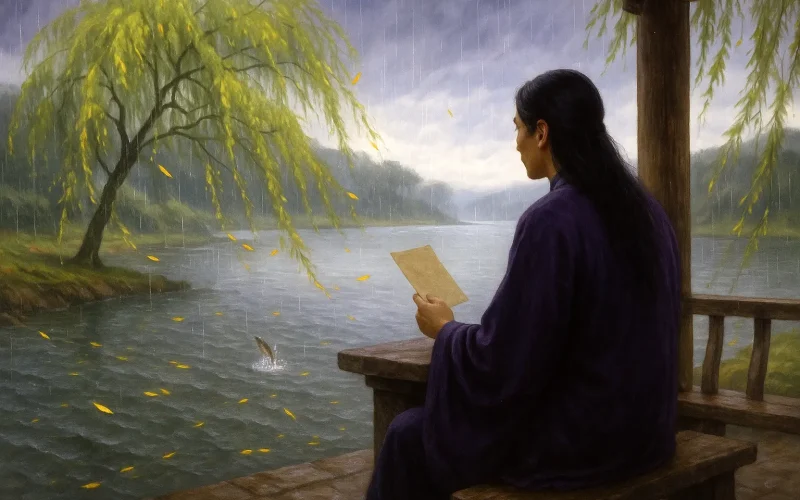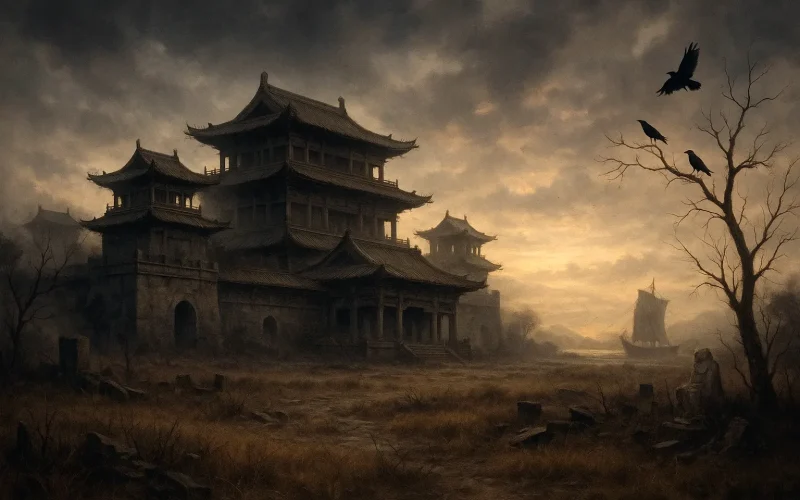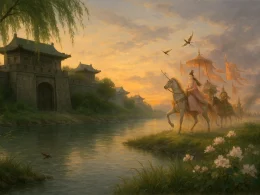There is only one Carved-Cloud, exquisite always -
Yet she dreads the spring, blowing cold in the palace,
When her husband, a Knight of the Golden Tortoise,
Will leave her sweet bed, to be early at court.
Original Poem
「为有」
李商隐
为有云屏无限娇, 凤城寒尽怕春宵。
无端嫁得金龟婿, 辜负香衾事早朝
Interpretation
This boudoir plaint poem from ancient China portrays the emotional desolation of an official's wife neglected due to her husband's political engagements. While such themes were common in classical poetry, this work subtly critiques society's obsession with status and wealth. Viewed through the poet's circumstances, it serves as both feminine lament and socio-political satire.
First Couplet: "为有云屏无限娇,凤城寒尽怕春宵。"
Wèi yǒu yún píng wú xiàn jiāo, fèng chéng hán jìn pà chūn xiāo.
Cloud-patterned screens frame endless grace / Phoenix City's thaw breeds dread in spring's embrace
The husband's perspective introduces luxurious domesticity - "cloud screens" symbolize aristocratic opulence, while "endless grace" objectifies the wife's beauty. The paradoxical "dread of spring nights" reveals his conflicted desire: torn between marital comforts and bureaucratic obligations. This tension foreshadows impending separation through seasonal symbolism.
Second Couplet: "无端嫁得金龟婿,辜负香衾事早朝。"
Wú duān jià dé jīn guī xù, gū fù xiāng qīn shì zǎo zhāo.
Why wed this gilded tortoise spouse? / Fragrant quilts abandoned for courtly vows
Switching to the wife's voice, bitter irony permeates "gilded tortoise" - a metaphor for high-ranking officials. The "fragrant quilts" abandoned at dawn become symbols of sacrificed intimacy. Her rhetorical "why" questions youthful aspirations for status, now realizing golden marriage cages breed isolation. The cold efficiency of "courtly vows" contrasts sharply with warm domesticity left vacant.
Holistic Appreciation
The poem layers feminine vulnerability over systemic critique. The wife's confession evolves from personal grievance to cultural indictment - her "gilded tortoise" represents all chasing hollow prestige. Spring's renewal ironically amplifies her abandonment, as nature's vitality mocks human estrangement. Through juxtaposed images of marital bedchambers and cold dawn courtrooms, the poet exposes how bureaucratic machinery devours private happiness.
Artistic Merits
- Perspective Choreography:The shift from husband's reluctant departure to wife's solitary reflection creates dramatic tension, mirroring society's work-life dichotomy.
- Sensory Contrast:Tactile "fragrant quilts" versus visual "cloud screens" map emotional geography - warmth versus sterile grandeur.
- Subversive Symbolism:The "gilded tortoise" (traditional status symbol) becomes ironic prison bars, challenging Confucian ideals of scholarly achievement.
Insights
This millennium-old verse remains painfully modern in its revelation: societal definitions of success often demand emotional bankruptcy. The wife's predicament mirrors today's workaholics sacrificing relationships on career altars. It urges re-examination of true "wealth" - not in gold-rank insignias but in shared dawns under fragrant quilts. Ultimately, the poem constitutes a proto-feminist manifesto critiquing patriarchal systems that monetize human connection.
Poem translator
Kiang Kanghu
About the poet

Li Shangyin (李商隐), 813 - 858 AD, was a great poet of the late Tang Dynasty. His poems were on a par with those of Du Mu, and he was known as "Little Li Du". Li Shangyin was a native of Qinyang, Jiaozuo City, Henan Province. When he was a teenager, he lost his father at the age of nine, and was called "Zheshui East and West, half a century of wandering".











